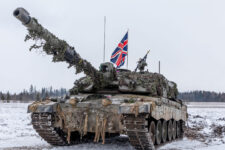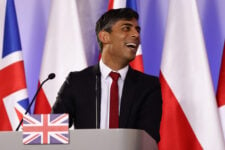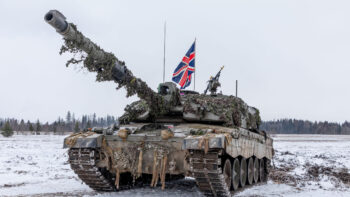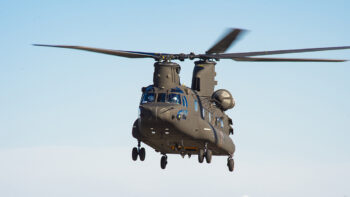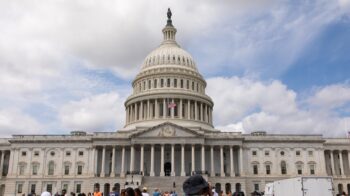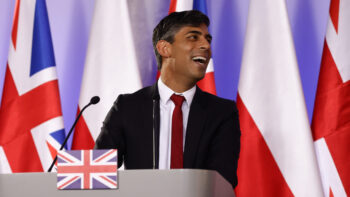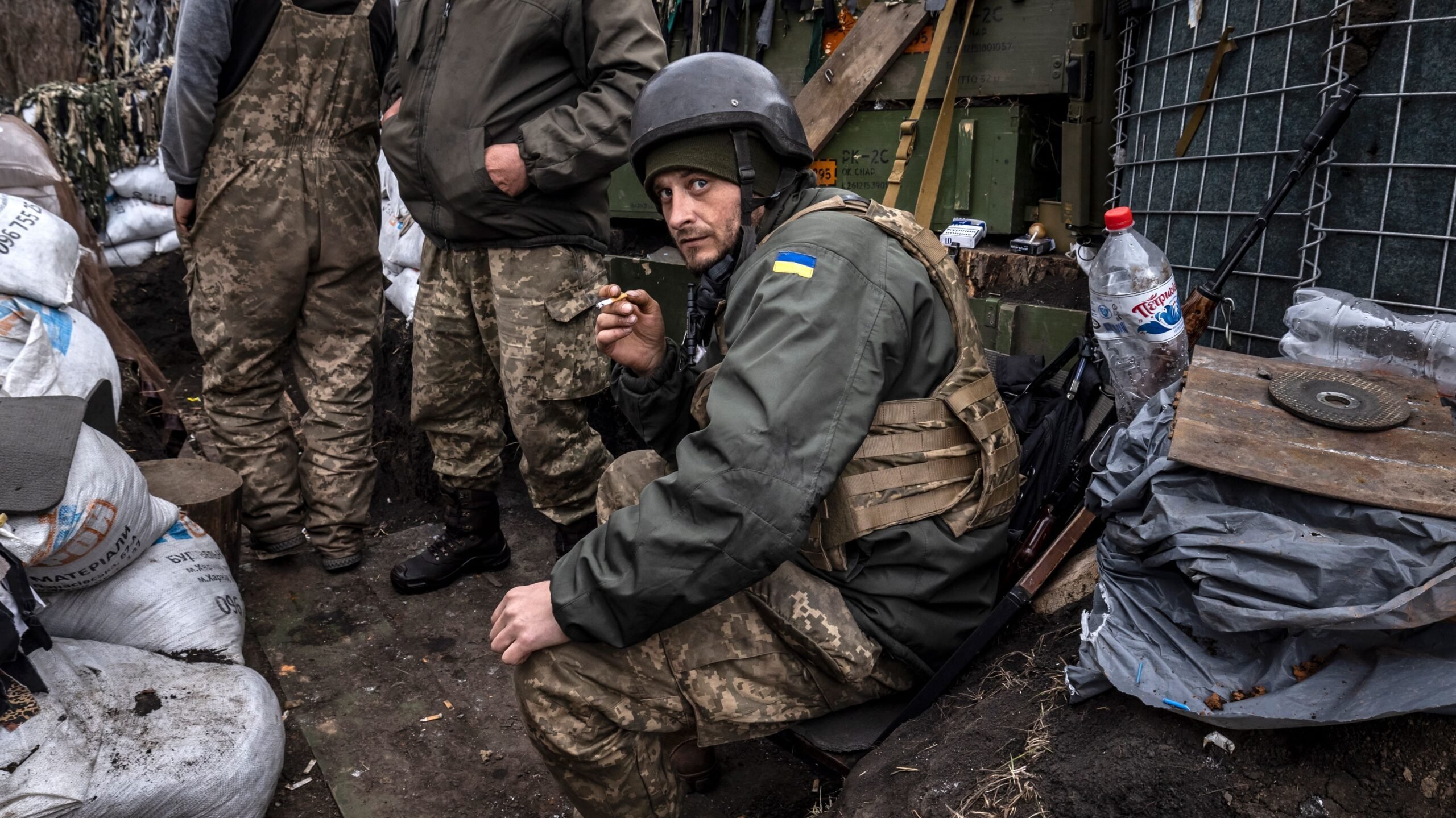
A Ukrainian serviceman smokes a cigarette in a trench at the front line east of Kharkiv on March 31, 2022.(FADEL SENNA/AFP via Getty Images)
LOS ANGELES — A strong majority of Americans support continuing military aid for Ukraine in its war against Russia and would back the US taking military action against Russia if it invades a NATO member, a new poll from the Ronald Reagan Presidential Foundation has found.
And yet, there are concerning signs for the second year in a row that the American public’s trust in the US military, long seen as a stable pillar of American society, has eroded dramatically in recent years.
Findings from the poll, done annually for five years, were made public ahead of this weekend’s Reagan Defense Forum, an annual gathering of US and global defense leaders at the Reagan National Library. It sampled 2,538 adult Americans between Nov. 9 and Nov. 17.
Roger Zakheim, the Washington director for the Foundation, told reporters ahead of the release that the impetus for doing the poll came out of hearing attendees at the Forum say that the American people believe a given policy is the correct one, when that take was actually just the “personal views” of the speaker.
“We wanted to have a survey that went deep into the issues of national defense, that reflected the views of the American people, that would enrich the conversations [at the Forum], but also drive the policy debate and discission in Washington” as it related to national security, he said.
Eighty-two percent view Russia as an enemy, up from 65 percent just last year. That increase came from double-digit jumps across Democrats, Republicans and independents, highlighting that anti-Russian sentiment crosses the partisan divide. Sixty-seven percent of respondents said they were concerned Russia could achieve victory, and 77 percent were concerned Russia might use a nuclear weapon.
Perception of Ukraine as a good partner increased from 49 percent in 2021 to 76 percent in 2022. Fifty-seven percent of respondents agreed with the statement that “America must continue to stand with Ukraine and oppose Russian aggression,” while 33 percent of respondents agreed with the statement that “America has enough problems at home and cannot continue to spend more on the conflict.” Broken down by party affiliation, 73 percent of Democrats and 41 percent of independents agreed with supporting Ukraine. The line was tighter for Republicans 44 percent to 39 percent.
Sixty percent of Americans support NATO broadly. However, when asked a follow-up question about whether the US should respond militarily to Russia if it attacks a NATO ally, that number jumped to 72 percent. Adding Sweden and Finland to the alliance had 71 percent support.
“The American people generally say they want NATO to do more and they want the United States to remain in NATO. They recognize the value of the alliance” even as they would like to see other nations take on more of the burden, Zakheim said. “In some respects, I think it’s reasonable.”
While that is good news for advocates of European security, there are worrying numbers in the domestic realm.
From 2018 to 2021, trust and confidence in the military fell from 70 percent to 45 percent. While that rose slightly in this year’s poll to 48 percent, the fact that America’s trust in the military dropped 22 points over a five year period should set off alarm bells for the Pentagon. (No other institution polled by the Reagan effort has such a sharp decline.)
Respondents gave a number of reasons for their declining trust, with perceived politicization of military leaders and questions about the commander in chief topping the list.
The Reagan pollsters attempted to tackle the politicization of the country by offering two choices to respondents: to blame “the so-called ‘woke’ practices’ undermining military effectiveness” (30 percent) or to blame “the so-called Right Wing or Extremist individuals serving in the military” (23 percent). Unsurprisingly, those who complained about “woke” practices were overwhelmingly Republican and those who complained about “right wing” practices were overwhelmingly Democrat.
This matters not just in the abstract, said Zackheim, but because trust in the military directly impacts the ability to recruit. And indeed, only 13 percent of respondents aged 18-29, the key recruitment range, said they were “extremely” or “very” willing to join the military — a number smaller than the 20 percent who responded “not willing at all.”
